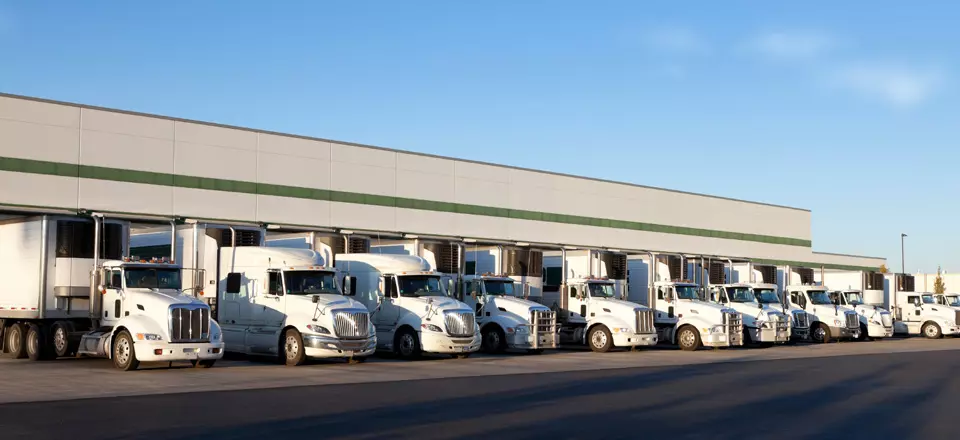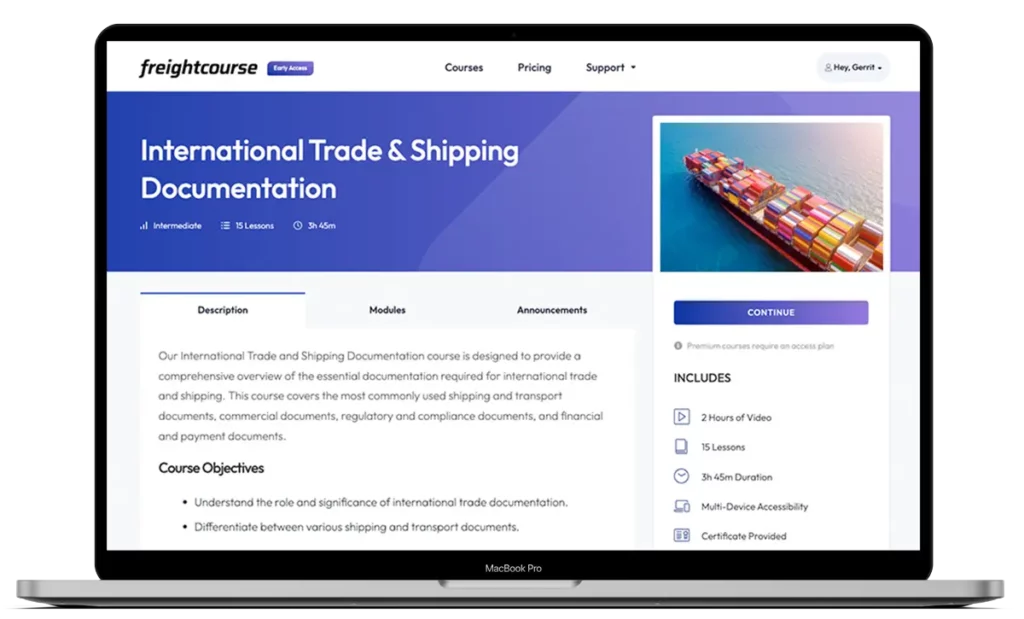The trucking industry offers several options to shippers looking to move their cargo. For instance, less-than-truckload (LTL) transport allows shippers to transport goods in small quantities by combining their cargo with loads from other shippers, which is more cost-effective.
On the other hand, full truck loads (FTL) allow shippers to move cargo in a single shipment using a truck that is fully loaded, without having to share the cargo space with other shippers.
Another popular in the industry is dedicated trucking. Dedicated trucking is a service provided by carriers or owner-operators where a truck and driver are assigned exclusively to a single shipper. This arrangement is typically for a specific contract period, in order to meet the transport demands of certain shippers.
In this article, we’ll explore dedicated trucking in more detail and shed some light on how it works. We’ll also highlight its benefits for carriers and shippers or receivers and discuss the various challenges.
What is Dedicated Trucking?
Dedicated trucking is a freight transportation service in which a carrier provides dedicated trucks and drivers for a particular client exclusively. In other words, the trucks provided are essentially not used to transport any cargo for other shippers.

Dedicated trucking services are generally customized according to a shipper’s or consignee’s specific transportation needs. They often have specific delivery timelines, equipment requirements, cargo handling processes, shipping volume, routes, and more.
However, it’s important to note that dedicated trucking doesn’t necessarily stop carriers from working with just a single customer. It simply means that they dedicate specific drivers and trucks to a particular client.
Therefore, they need a sizeable fleet as most shippers looking for dedicated trucking services usually have higher shipping volumes.
How Does It Work?
Dedicated trucking is not too different from conventional trucking models. To start, carriers or brokers look for dedicated loads in their networks or use load boards and digital freight matching tools.
Conversely, shippers and receivers seek brokers or truck dispatchers to find carriers with a sizeable fleet to provide dedicated trucking services. Customers who use dedicated trucking services typically negotiate rates that are more favorable than spot shipments.
In turn, they offer carriers with consistent shipping volume between various routes. However, other factors that affect the rate include travel distance, routes, ease of accessibility (limited access areas), truck or trailer types (flatbed, reefer, etc.), and additional services.
Once a contract is signed, the carrier manages the entire operation, from dispatching to routing schedules, and procurement of additional services (special handling, tracking, and lumper services, among others) to ensure reliable, efficient, and cost-effective transport.
How to Prepare for Dedicated Trucking?
Many medium and large trucking companies with sizeable fleets and resources seek ways to generate consistent revenue. By dedicating resources to a single client, they can usually secure constant loads while maximizing the rest of their fleet for their regular intermodal transportation via drop trailer services and other efficient trucking methods.
However, carriers are required to prepare proactively before offering dedicated trucking services. Below are four essential aspects carriers should consider.
Have Sufficient Equipment
Trucking companies must first ensure they have enough trucks and trailers to meet the requirements of their shippers. In some cases, they may need to increase their fleet size or invest in different types of trailers to handle their client’s cargo.
For instance, some shippers may need to move perishable items like meat and dairy products. A carrier can procure and dedicate all their reefers to the shipper and use their remaining non-reefer trucks for other deliveries.
Today, most carriers offering dedicated trucking services have a fleet of more than ten trucks with at least a ratio of 2 or 3 trailers per truck.
Establish Clear Communication Channels
Since carriers deal with only one client per contract, they need to establish a strong communication channel to maximize transparency during transit. They need to find key personnel and secondary contact for each facility the cargo is transported to or from.
By doing so, they can reduce waiting times, minimize idling, and maximize customer satisfaction.
Pre-Plan Routes and Schedules
Carriers looking to adopt dedicated trucking services should learn how to establish the most efficient routes and schedules to a fixed destination. Moreover, they need to proactively discuss with shippers about their loading and unloading timelines, peak shipment seasons, and other details to prepare ahead of time.
Furthermore, they should also consider identifying and investing in infrastructure to support this activity, such as truck terminals, drop yards, repair services, accommodation, and other facilities on specified routes.
Leverage on Technology
Finally, truckers need to leverage a proper mix of technologies to maximize operational efficiency and minimize their cost per mile. For instance, they can install auxiliary power units (APUs) on their trucks to minimize idling, install advanced electronic logging devices (ELDs) to monitor truck and driver performance, and enable GPS tracking to improve customer satisfaction.
Benefits of Dedicated Trucking
Dedicated trucking offers a host of lucrative benefits to carriers and shippers. In the subsections below, we’ll explain some of the key benefits for both parties.
For the Carrier
Many trucking companies and owner-operators prefer hauling cargo for a single client to enjoy the following benefits:
- Consistent Revenue – By working with a single shipper, carriers don’t have to worry about looking for other loads as frequently. Dedicated trucking usually includes long-term contracts, which allow truckers to generate steady income for a specified period.
- Improves Productivity – Dedicated trucking improves truck and trailer utilization by ensuring carriers have a predictable schedule to follow during their routines. A pre-planned delivery timeline can also improve operational efficiency by improving driver productivity, reducing idling, and minimizing bobtailing and dead miles with more backhaul trips.
- Enhances Drop Trailer Services – Backhaul trips allow carriers to initiate drop trailer services and carry out multiple pickups and deliveries for the same client on demand.
- Better Customer Satisfaction – Dedicated trucking allows carriers to build long-term relationships with shippers and consistently prompts them to provide top-notch services.
- Gain Insight – Transporting cargo for a single client lets carriers gain insight into the shipper’s or consignee’s industry. With the data gathered, they can expand their services vertically or horizontally in a particular niche or industry.
For the Shipper & Receiver
Conversely, shippers and receivers (consignees) who work with dedicated trucking providers get to enjoy the following:
- Better Transparency – Shippers and receivers can streamline communications and improve operational efficiency by working with a dedicated fleet and drivers. This also typically means that they can expect a more customized experience and better customer service.
- Consistent Truck Availability – By partnering with a trucking company, shippers can ensure they always have trucks at their disposal to move cargo on demand. They can forgo unnecessary administrative tasks such as looking for carriers and negotiating rates whenever they need to have supplies, goods, or equipment moved.
- Better Control – With dedicated trucking, shippers, and receivers can enjoy more control over truck scheduling and not rely on a carrier’s schedule. Dedicated trucking allows them to plan pickups and deliveries based on their facility’s capacity, available resources, and preferences.
- Bespoke Services – By opting for dedicated trucking services, shippers can customize their contract with a carrier to meet specific requirements, such as special handling, storage, cargo loading and unloading, lumper services, and more.
- Reduced Administrative Tasks – Finally, by working with trucking companies that offer dedicated trucking services, shippers typically only have to set up administrative procedures once with minimal adjustments or changes. In other words, they can reduce their administrative burdens and simplify supply chain management.
Challenges That Come With Dedicated Trucking
Every trucking model or strategy has unique challenges that carriers and shippers have to assess and overcome. Below, we’ll highlight the three key challenges associated with dedicated trucking.
Maintaining Profitability
Many carriers have to settle for lower rates to win long-term dedicated trucking contracts, which can affect their profitability and revenue. Shippers usually negotiate based on shipment volume and frequency.
Moreover, many shippers and receivers request complementary services that incur higher costs to carriers, including live loading. In some cases, clients will likely change their volume requirements during transits and cause carriers to increase their cost per mile due to unnecessary idling, bobtailing, and deadhead miles.
Furthermore, dedicated trucking contracts can easily last for years. During this period, fuel prices and market rates may go up. However, since carriers are contractually bound to fulfill requests at a contractual rate, they are required to provide their services even if it results in losses.
Risk Management
When offering dedicated trucking services to a customer, carriers usually take on more than just larger volumes of cargo. They also take on more business-related risks, such as issues that disrupt supply chains and tarnish their reputation.
For instance, a shipper may terminate a dedicated trucking contract if their carrier loses or damages their cargo during transit or fails to make deliveries on time. A contract cancellation can make it extremely difficult for carriers to recover since it is likely to make up a significant portion of their revenue.
Secondly, all industries in the 11 Global Industry Classification Standard (GICS) sectors are prone to economic downturns. As a result, by working with shippers from a specific industry, carriers usually fail to diversify their services and may be heavily affected by that particular industry’s downturn.
Thirdly, many shippers require dedicated truckers to haul cargo on difficult or limited access delivery routes, affecting driver satisfaction and putting the carrier’s business continuity at risk.
In the modern age, only carriers with high capital have the means to prepare for contingencies and manage these risks properly. However, they usually have to spend a huge portion of their revenue on risk management.
One way they can reduce these risks is by outsourcing a portion of their loads to other carriers using interchange agreements and reducing their overall capacity utilization and truck expenses.
Optimizing Resources
Most carriers in the trucking industry struggle to optimize their resources and assets. This goes especially for trucking companies with dedicated trucking models providing other services.
Hiring the right amount of drivers and procuring the right amount of trucks and trailers depends heavily on the predictability of shipment volume. When offering dedicated trucking as part of their service offering trucking companies may need to hire more drivers and produce more equipment.
If not practiced correctly, this can lead to equipment and driver underutilization, which can negatively affect their profitability. Moreover, breakdowns, maintenance activities, and driver shortages can easily affect day-to-day operations for carriers with lean operations.
This can disrupt their operations, especially during peak seasons or when dealing with unexpected volume surges. Due to truck or driver shortages, they may not be able to deliver the same level of service quality consistently.
As mentioned above, carriers can partner with other carriers or sub-haulers and share their resources when needed. Carrier partnerships can also potentially enable them to forgo the need to procure more trucks or hire more drivers.

Get Free Course Access
If you enjoyed the article, don’t miss out on our free supply chain courses that help you stay ahead in your industry.

Andrew Lin
Co-Founder & Writer
at freightcourse
About the Author
Andrew is a multi-business owner with over 12 years of experience in the fields of logistics, trucking, manufacturing, operations, training, and education.
Being the co-founder of freightcourse has given him the ability to pursue his desire to educate others on manufacturing and supply chain topics.
Follow us